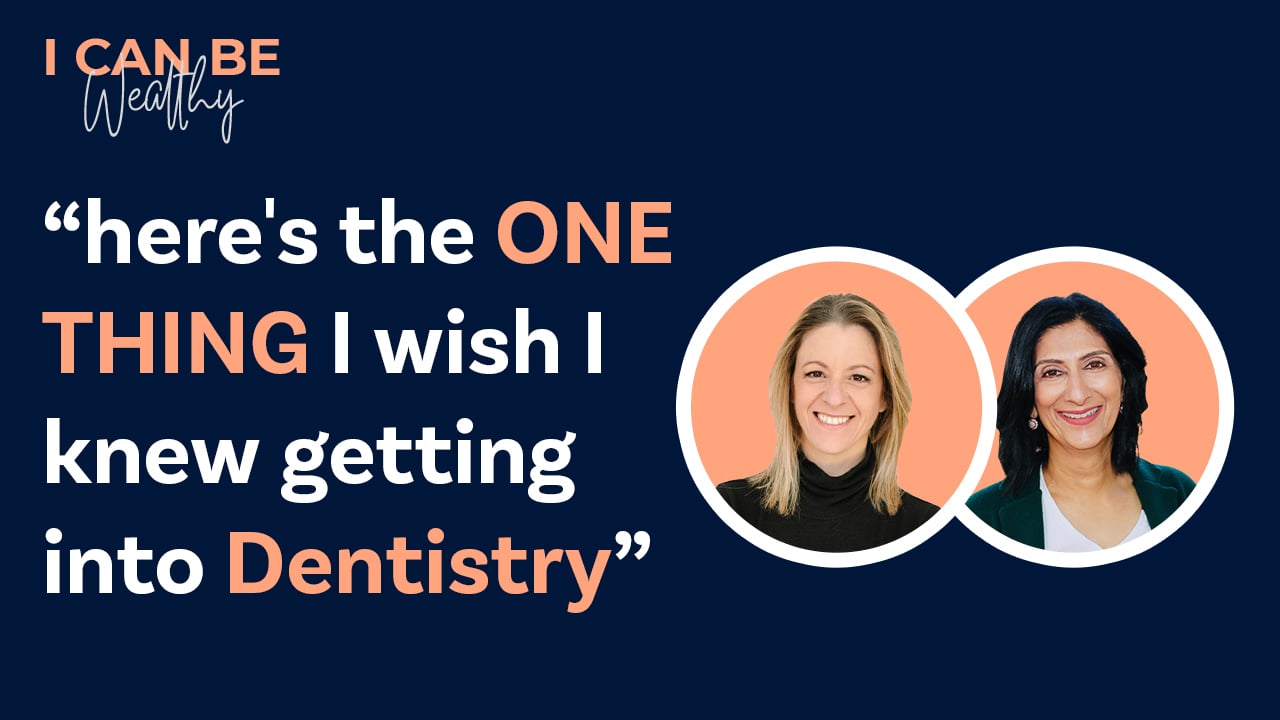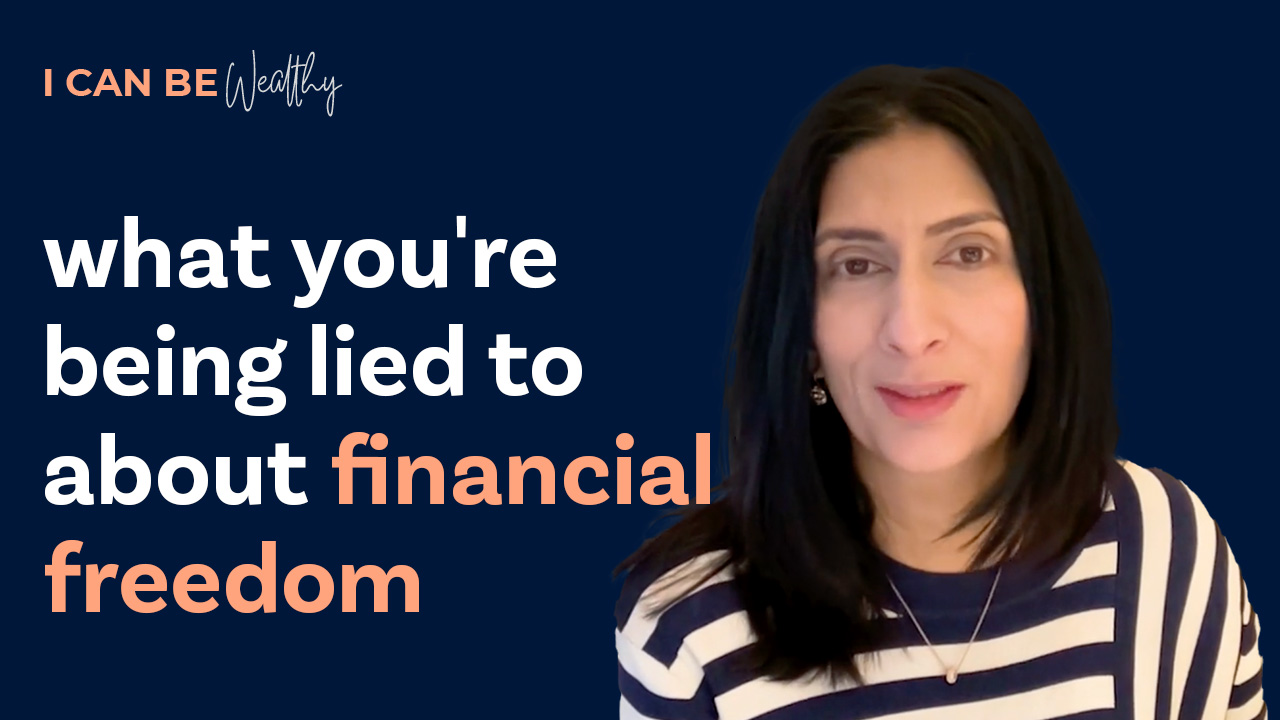Investing Has Become Commodity
I think investing for most people has become this very commoditised thing, meaning that wealth planners want us to put our faith in them and their products. This is what they’re trained for. This is what they understand. This is how they get paid. Anything that sits outside of their field of knowledge must be dangerous, must be risky and should be avoided at all costs.
Now obviously my asterisk here is, I have a lot of friends in this space and some of the people who I’m talking about are good guys and girls. But it’s simply that whole thing of, you just don’t know what you don’t know. The truth of the matter is, because of the limited access to deals outside of the norm and the lack of wisdom, we assume that risk and reward must be related.
In fact, I would hazard a guess that if we were to interview or put the whole population through a questionnaire of some sort, they would probably say that risk and reward are correlated because over the last four decades, that’s what we’ve been taught to think.
I want to unpack a different paradigm to consider and then go and explore on your own. See, I prefer to live by a completely different ethos, so I’m going to share some of that ethos with you, just to give you a flavour of other ways of seeing the world.
Only Invest in What You Understand
Obviously, rule number one is: only invest in what you understand. That includes blind faith of following the guidance of well intentioned advisors.
The extension of this is, be as investment agnostic as possible. There’s no question that when you’re born, the situation that you were born into, your parents’ view and your family’s view of wealth and money is totally going to colour what you think constitutes a good and bad investment.
This idea of being agnostic is partly about trying to suspend those beliefs, and it’s not easy. Start to evaluate investments based on the merits that you have.
Part of that journey is about building your investing rules and do’s and don’ts, and that capacity to distinguish between good and bad. Being investment agnostic is an awesome value to aspire to.
Don’t Confuse Unfamiliarity with Risk
The next piece is, don’t confuse something that’s unfamiliar with risk. They’re two totally different things and let me explain.
I am totally cool with someone saying they don’t know much about alternative investing, but then the problem is when they categorically declare it to be risky.
What I want to do in this podcast is actually unpack why I think that alternative investing is neither weird nor risky – at least the way that I do it.
And when I say not risky, obviously all investment has risk, but not in the way that it’s obviously often tarnished by wealth professionals.
Understanding Market Fundamentals
So the next thing you need to understand is market fundamentals.
Alternative investing is definitely up until, I would say, very recently, the playground of the ultra wealthy and those who really do sit outside of mainstream investing. Part of the reason it continues to be a place where only high net worth individuals play is it’s an unregulated space.
The government can’t really wrap their heads around it, the banks can’t quite wrap their heads around it – it’s almost like this very entrepreneurial space that’s been created. People who play in this space will often only want to play with other people who are also wholesale and sophisticated investors.
This means that even though these strategies could help everyone, from young people through to mum and dad investors, generally speaking, there’s a bit of an invisible gate which stops people entering it, because if you’re in that space you want to deal with people who you know who are going in eyes wide open, who are educated.
I think the other part of the understanding of market fundamentals is that alternative investing is by nature a very inefficient market, meaning there are more good deals out there than we see in mainstream, and that’s always going to provide an opportunity for bigger returns.
An efficient market such as the share market, to a lesser degree, our traditional property strategies where you just go out and you buy houses – it’s harder to find exceptional deals because that’s what everybody knows. And so, that is where competition is fierce, and you’re obviously either having to leverage somebody else’s network to get those sorts of deals ahead of others, or you’ve got to go out and just fight for them.
So that’s the idea around needing to understand your market fundamentals and that’s why alternative investing for me is just a natural extension. Because it’s inefficient, I’m going to get a bigger reward.
The Value of Having Downside Protection
The next thing I want to make sure you understand is a concept which is not spoken about, which I call downside protection.
Downside protection is really about how the risk on this investment has been structured and managed. I know people who are so in the weeds and experts on these topics that they could probably speak for a week on it.
The point of what I’m trying to say is, when we go into an investment, we’re not necessarily asking what the downside protection is, like looking at how deals are structured, what is exit plan A, B, C, and D?
Let me contrast a couple of examples here because I want to make this really real for you. Let’s say you decide you want to go and buy a traditional house to hold as an investment property, and they’re obviously expensive to buy. Let’s say we went for a blue chip house or unit in a big city because we wanted to be where the action’s at. We wanted to stack the odds in our favour and give ourselves the highest probability of growth.
There are obviously high entry costs. There are high exit costs. Maybe you use some kind of buyer’s agent or agent to help you secure it because you don’t have time. Maybe you go to the banks and you use a bit of leverage. Maybe the cash flow is pretty dismal or pretty ordinary, but your hope is that over time, the market will rise. But maybe rents will go up and eventually it’ll spit out a bit of cash flow. Maybe you’re hoping that you’ll be able to pay down the debt with your surplus income. But you’re basically banking on a rising market. And there’s a good chance that you will actually do OK and it will be awesome for building your personal balance sheet. Not always, but there’s a good chance that you look at that, and on judgement and balancing out the risk you go, yep, I like it.
So that is the model that most people are familiar with, that they know, that they trust. Now let’s talk about an alternative strategy. There are five buckets of strategies that sit in alternative, but let’s pick something very simple that you can probably understand because you’ll have heard of it: a syndication, where you get a group of investors and they work with a deal maker to go and buy a single asset.
Now let’s assume that this syndicator is going out and buying a group of established townhouses. There’s no construction risk. There are multiple exits on this deal. It’s a very experienced deal sponsor. They have institutional grade due diligence that they do. They have allowed their books to remain open and auditable by an independent body. They’re focused on affordable housing, so there’s a large pool not only of prospective tenants, but prospective buyers.
You, as the investor, have no involvement in the day to day, somebody else is running the deal. The deal is already cash flowing on day one, meaning even if nothing happened, there is a good cushion in terms of cash flow. You’re going to purchase at below market value because this has been brought to you as an off market opportunity. And your deal sponsor has laid out in great detail a project plan to make minor improvements to the building and the units that will massively amplify the value in today’s money. So they are not worried about whether the market rises, they can already see in today’s money that these minor changes are actually going to inflate that valuation.
So if I contrast those two opportunities, it’s really obvious to me that if I’m in that stage of my investment journey where I need to build capital, then clearly something like a buy and hold strategy is great. Is there more risk in that versus something that’s cash flowing from day one? I think it’s hard to say on a superficial level, but I would actually argue that what I like about the townhouse syndicated deal, and the point that I want to make about these two deals, is that there are multiple exit strategies.
If the market goes up, down or sideways, we’ve got cash flow. Plan A might be that we’re going to very gradually renovate the town houses, increase the value of the property and then sell it. Another might be that we’re going to take the units and partially renovate in order to get a small increase in valuation so that we’ve just got that equity cushion. There are other permutations in terms of how that deal could be exited in a way that gives the investor a high degree of confidence that their capital is going to be preserved and is secured by real property.
But what I love most about this is that apart from the multiple exits, and I probably only covered a couple here, I like that I don’t have to do anything. Property the way that we know and experience it is a relatively active strategy, you’ve got to deal with tenants and toilets and maintenance, you’ve got to deal with securing the asset, you’ve got to deal with the bank – so there’s there’s a lot more friction in that deal than there is on the syndication.
People Fear What They Don’t Understand
So in answer to the original question, are alternative investments weird and risky? Are risk and return correlated? Are they that married couple?
Well in my world, the answer is categorically, no. They’re not married at all. I know that I can do things with my money where my return is significantly higher than I can get elsewhere for what I perceive to be lower risk.
Your decision to go one way or the other depends on where you are and where your interests lie.
But from a wealth professional perspective, if you’re someone who’s seeking advice from a wealth professional, if you’re asking them for advice on what you should do with your money, you need to bear in mind the filters that they bring to the table. The filter that you should have is, how do they get paid? How much do you know and understand?
And for getting leverage and strategy, let me just finish with this. If you handed me $1,000,000 and said you can do one of two things: you can split that into say 15 opportunities that would all pay you a net return of 12%, that didn’t require a rising market, that could withstand economic turbulence.
Or you could take that $1,000,000 and buy a nice house or a nice unit, maybe even two, that would cost me money to hold it, meaning I’d have to divert precious income into supporting that asset, but might one day go up in value.
I know what I would do.
The question you need to ask yourself is, do you?
Final Thoughts
I hope this has been really useful.
If you’re a business owner feeling frustrated that despite doing everything right in the property investing playbook and you’re no closer to financial freedom, then head over to www.inkosiwealth.com to learn more about how you can use alternative investments to catapult your investing income and blend strategies to shave decades off your timeline to financial freedom.
If you’re interested in understanding how to create wealth through alternative strategies, please check out my programs, where I help you catapult your investment income and blend strategies to shave decades off your timeline to financial freedom.
Or, you’re welcome to get in touch today, book a call with me, and I would be happy to talk you through it – no obligation!









